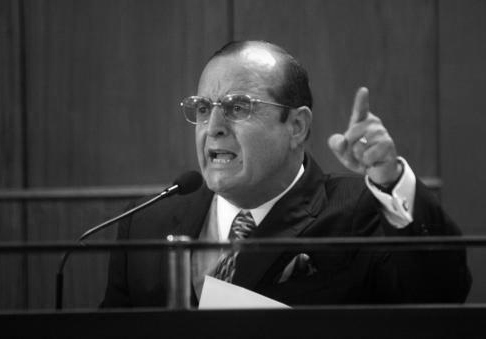The ICJ intervened today with the Government of Peru in response to action by the executive and legislative branches which threaten to undermine the independence of the judiciary in that country.
The activity relates to the preventive detention, ordered by anti-corruption Judge (juez anticorrupcion) Cecilia Pollack, of twelve military officers who took part in operation Chavín Huántar on 22 April 1997. The operation had been aimed at ending a four-month siege at the Japanese embassy in Lima by the Movimiento Revolucionario Tupac Amaru (MRTA). Judge Pollack’s order was based on an indictment issued by prosecutor Richard Saavedra, who had determined that seven members of the MRTA were unlawfully killed, apparently after having surrendered.
On 14 May 2002, the Minister of Defence Aurelio Loret de Mola publicly declared his support for eleven of the twelve army officers affected and denounced their preventive detention. This support, which was political and not juridical in nature, may serve to apply undue pressure upon the judiciary and potentially to prejudice the outcome of the judicial proceedings. It is notable that the Minister of Defence felt obliged to indicate that his support did not extend to Colonel Jesus Zamudio Aliaga, who has been linked to the flight from Peru of Vladimiro Montesinos (photo), former intelligence adviser to the Fujimori Government. Such selective defence appears to confirm suspicions as to the political motivation of the Minister of Defence in expressing himself on a matter properly within the exclusive competency of the judiciary.
The ICJ’s Centre for the Independence of Judges and Lawyers also finds problematic the cross-party statement adopted on 16 May 2002 by the Peruvian Congress, expressing concern at the detention of the military officers and support for the members of the armed forces that had participated in the rescue of hostages at the Japanese embassy. This statement was preceded and followed by declarations from several members of Congress characterizing the preventive detentions as a “scandal” and deploring the fact that “yesterday’s heroes had become today’s criminals, due to a prosecutor.”
The above-mentioned statements, coming respectively from a high-ranking executive official and members of Congress, clearly constitute instances of interference by the political branches on the functions of the judiciary and risk imposing undue pressure on the prosecutor and judges involved in the case. Under Principle 2 of the 1985 United Nations Basic Principles on the Independence of the Judiciary,
The judiciary shall decide matters before it impartially, on the basis of facts and in accordance with the law, without any restrictions, improper influences, inducements, pressures, threats or interferences, direct or indirect, from any quarter or for any reason.
The ICJ was encouraged by the statement made on 15 May by Attorney General Nelly Calderón Navarro that no pressure would be accepted on the decision to be taken by prosecutors and that the independence of each magistrate would be fully respected.
A second matter of concern arises from proposals by various Congressional Parties for amnesty legislation to cover those military officers who participated in operation Chavín Huántar. As of 18 May, four amnesty drafts laws were reported to be under consideration by the Congressional committees on justice and human rights. Any such law, if adopted, would prevent the judiciary from continuing any inquiry on the case, in direct contravention of the 14 March 2001 ruling of the Inter-American Court of Human Rights that Peru’s 1995 amnesty laws lacked judicial effect and were incompatible with the American Convention on Human Rights. The Court had also determined that amnesty laws should not impede the investigation or judgement in human rights cases. The amnesty law question in respect of the present case is expected to reach the plenary of the Congress within the next two weeks.
Peru has made considerable strides of late towards restoring the rule of law. The ICJ fears that these gains and the fulfilment of Peru’s international obligations may be jeopardised through the adoption of amnesty laws.
The ICJ’s Centre for the Independence of Judges and Lawyers would request that network member call on the Peruvian Government:
- to support the aforementioned position of the Attorney General and to take measures necessary to ensure that the executive and legislative branches refrain from statements or actions which risk undermining the independence of the judiciary and the prosecutor; and
- to desist from adopting any amnesty legislation in violation of its international obligations.
Please write to :
Excmo. Sr. Alejandro Toledo Manrique
Presidente de la Republica del Perú
Ministerio de la Presidencia
Ave Paseo de la Republica 4297
Lima, Perú
Fax: 51-1-222-3482
Fernando Olivera Vega
Ministro de Justicia
Ministerio de Justicia del Perú
Scipión Llona 350-Miraflores
Lima 18, Perú
Fax: 51-1-422-3577
The ICJ’s Centre for the Independence of Judges and Lawyers would be grateful if you could inform us as to correspondence undertaken, including any replies received.





